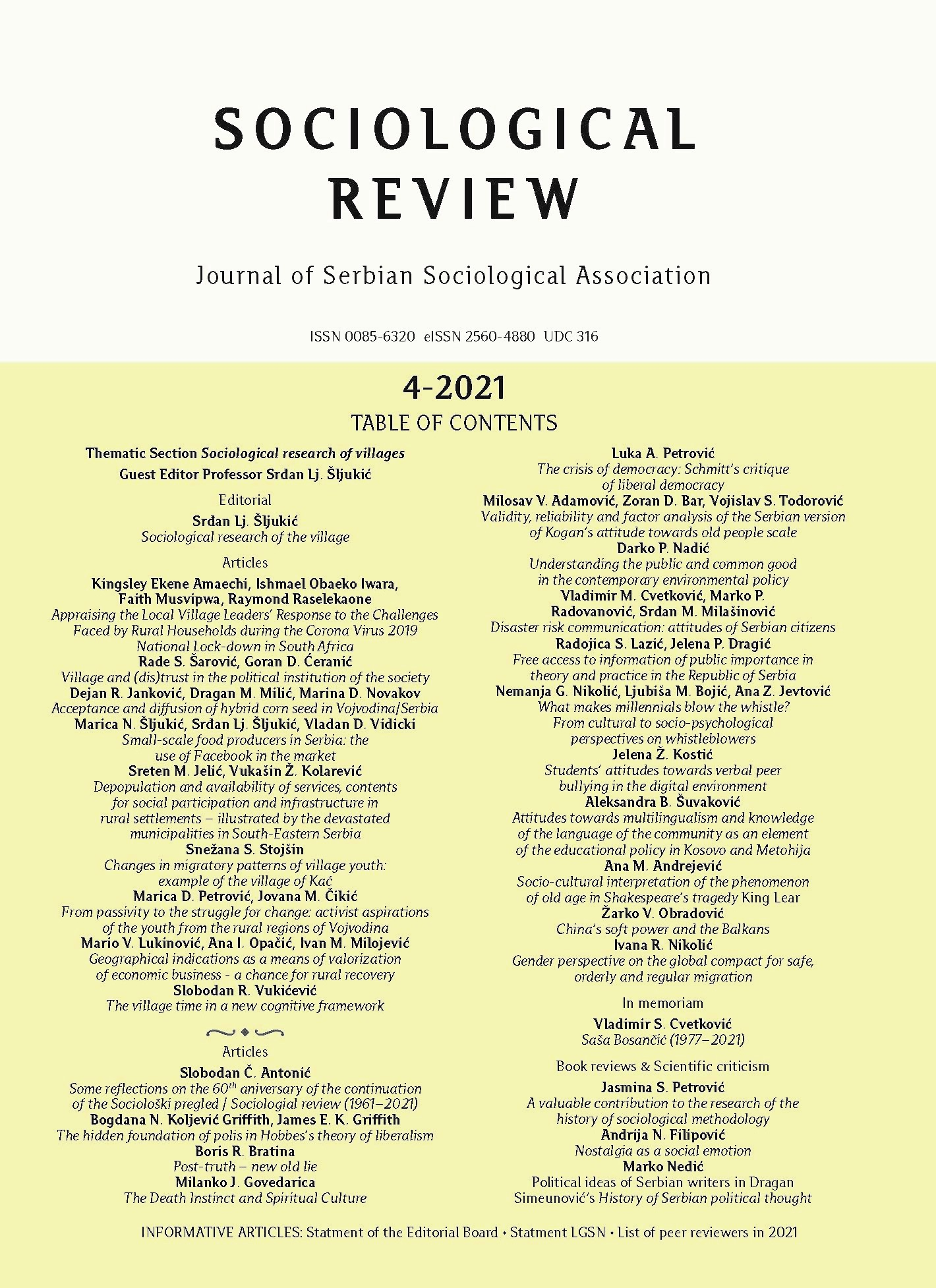The hidden foundation of polis in Hobbes‘s theory of liberalism
The hidden foundation of polis in Hobbes‘s theory of liberalism
Author(s): Bogdana N. Koljević Griffith, James E. K. GriffithSubject(s): Social Sciences, Sociology, History and theory of sociology, Social differentiation, Social Theory, Sociology of Politics
Published by: Српско социолошко друштво
Keywords: appearance;techne;polis;oikos;liberalism;
Summary/Abstract: In the article the author reflects upon the issue of the basis of Hobbes‘s theory of liberalism i.e. examines the way how a par excellence theory of Modernity shifts from being a political ontology into apolitical haunt logy proper. In this light, the first part of the paper – beginning from Hobbes‘s concept of politics as a technique – the concepts of appearance, representation, theatre and imagination are reflected as the foundations of sovereignty. Considering the conditions of possibility for a despotic techno, the second part of the paper puts an emphasis on the structural relation between polis and oikos, and on the unclear, hidden element of oikos, i.e. the figure of the mother and the matter of authorization. The specificity of the mother‘s role in the Commonwealth – as well as before the establishment of the state and the sphere of the political – is first and foremost contained within the dialectics of her permanent absence and the fact that the figure of the mother represents the very principle of beginning of life and of its sustainability. In conclusion, there is an outline of the potentialities of different thinking of sovereignty and politics of freedom.
Journal: Социолошки преглед
- Issue Year: 55/2021
- Issue No: 4
- Page Range: 1488-1504
- Page Count: 17
- Language: English, Serbian

